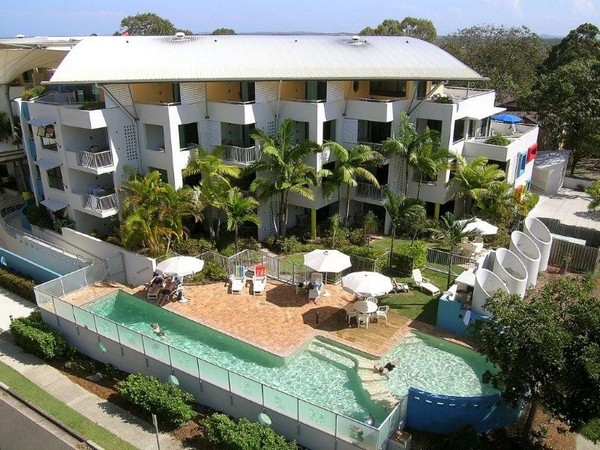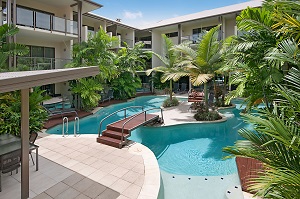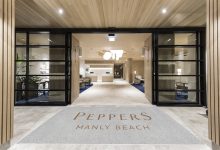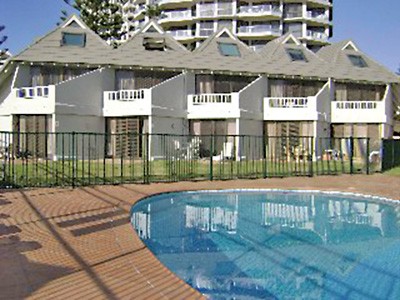ARAMA
Management Rights in Queensland – How the Industry Developed
The development of the management rights industry is closely linked with the growth and prosperity that has placed Queensland as the leading tourist centre in Australia and continues to work on new opportunities to expand the industry.
The formal development of the management rights industry commenced five decades ago and identifies the commitment of its pioneers to structure an orderly industry. The establishment of what it is today ARAMA resulted from the practical nature of the industry requiring understanding and cooperation by a range of service providers and industry operators, to attract not just visitors but investors to ensure that the facilities and services that make an Australian holiday are available. In the 21st century the role of the resident manager in permanent residences continues to grow as the nation embraces density living.
The history of management rights is divided into three distinct sectors, the original Accommodation Owners Association formed in 1969 and then the development of QRAMA in 1992 and now in the 21st century the Australian Resident Accommodation Managers Association (Queensland) with 1000 members is going forward as part of a national body with branches now in NSW and Victoria.
Management rights commenced on the Gold Coast in the late 1970s as a part-time semi retirement role in small complexes where the manager provided the basic daily caretaking role of cutting the lawns and cleaning the pool as well as letting units on behalf of investor owners. The industry has grown from that beginning into larger complexes with more equipment and facilities that requirement more skills and more staff. Owners generally have taken a greater interest in their investment – it is no longer just a flat at the beach that earns some money sometimes. Many owners now understand that proper presentation and marketing of their property is needed if the capital value of their property is going to grow and the financial return will meet their objectives.
Guests have become more demanding and expect not only a clean and well equipped apartment with the latest appliances but also a service desk that can advise and book tours, as well as advice about local attractions and services.
While the industry had had some operators with small groups of complexes that have been managed by employee managers, in the last decade there have seen public companies becoming involved in the industry. Hence we have seen emerge two types of operation – the independent or “private” operator who owns the management rights and works in the complex each day and the corporate operator which is part of a public company and sets policies and practices that employee managers implement.
QRAMA, now ARAMA was activated in 1992 in response by the management rights industry on the Gold Coast and Sunshine Coast to have representation in the review of the legislation to ensure that restricted letting agents were able to sustain their commercial position within the old Building Units and Group Titles legislation.
Its first president was John Gardiner who brought resident managers together from a need to represent and protect the management rights industry initially from the threats of raised by the green paper prepared by the state government to develop the new legislation.
QRAMA was structured on the basis of regional committees providing local support and regional representation to deal with grass roots issues, reporting to the state council that had been supported by a full time secretariat since 1994.
In 2007, ARAMA was founded to ensure that as the density living industry continued to grow rapidly in major centres of population in Australia. This new chapter in the industry history is detailed following the early years review.
Originally called the Australian Accommodation Owners Association but changed its name in 1970 to Accommodation Owners Association, it operated in the early days when there were no management rights as such and the “flats” were all owned by the building owner. Mostly small complexes of three flats and up to six to eight flats together there were also quite a few motels.
Veteran operator David Buxton joined the AOA in 1968 and was elected secretary in l969 with Vic Green who owned and operated the Bel Air Motel in Cavill Ave, Surfers Paradise as president.
Vic Green had approximately 10 units and David Buxton had just finished the first floor on a three storey block of flats and had four to let. Flats rented by the unit per day or night, plus linen and TV if required while motels had daily service provided and included both TV and breakfast. They had no cooking facilities at all except for a kettle or a jug to boil water. Both flats and motels had a shared laundry, some motels had a phone system but most motels and all flats had a gold phone and which, when being used by a guest, prevented incoming calls to the property.
Some bookings were done by phone but in many cases, letters were written and posted back and forth.
Various tour operators (coach and boat) sent a representative to call on all properties involved in the tourist industry to sell their particular tours and they did by the entering property and meeting guests around the pool or BBQ area where they explained to the guest what their tour involved and actually wrote out the admission ticket in the tourist operators ticket book and either took the money from the guest, leaving the commission with the accommodation owner as he departed, or booked the tour to the guests’ room.
The commission always went to the accommodation owner.
In 1969, now with 8 flats to let, Dave Buxton became chairman of the AOA and began pursuing the elusive “groups”, and went to Melbourne on behalf of the AOA, seeking support from the airlines.
He went to Ansett first, who advised that people who flew were superior to those who drove cars and that “flats” could not compete with motels because “their” guest required daily service and breakfast supplied. So from Ansett, AOA met with Trans Australia Airlines who outlined that the group had full apartments with separate lounge, dining and kitchen, there was no need to supply the breakfast as the guest could prepare his own much cheaper.
AOA continued to let flats off the street or by phone then moved to print a magazine annually called the Accommodation Owner’s Guide at a cost of $40,000 in 1970 and distributed this to travel agents and proposed guests. They also created a booking service to help the association along working unsuccessfully with local Real Estate Agents but then AOA had a change of direction.
A few months after seeing TAA Airlines, they advised that they would be interested in this new concept of fully self-contained accommodation. David Buxton rang 30 properties and eventually had 10 to agree to pay 10% commission, a new concept for the time and eventually the 10 operators submitted the quotes to the airlines. David had three categories which were $21, $28 and $35 per week for accommodation (self-contained) that provided linen and TV.
This was the start of making self-contained accommodation more professional.
Eventually TAA launched the new program and AOA members waited, hoping for a good result.
After a few months of teething problems AOA toured southern travel agents offering them the concept and it then started to work.
Ansett joined in the success of the package and the network grew to about 96 properties on the package and after many years it included all the bigger properties of the time such as Golden Gate, Focus and the Quality Inn Group with Iluka, Chateau, Apollo and Surfers Century.
In the meantime, AOA central reservations letting pool for the owners was improving immensely and was now employing extra staff to cope and this partnered with the Air Package, made the AOA the organisation you could not afford to not be in.
As management rights became more popular and these could supply more beds , the Air Package became stronger and right up until the end of the existence of the AOA, both airlines would come to AOA each year to get the pricing for their following year’s package.
Both airlines received the same rates.
The properties now represented nearly every major building on the Gold Coast with membership of 120.
But change was in the air and the smaller “flat owners” were gone and management rights became the new way of life and business as the newer, larger buildings were trying to gain more exposure and started to go directly to the airlines to achieve a “better” deal.
The AOA operation was taken over by the Queensland government who called it “Sunlover”.
The reality was that it could not have gone to a better organisation and they pumped the dollars into it and it really became a giant until changes in the airline industry in 1999 and the corporatisation of the Queensland Tourist Bureau resulted in the privatisation of the booking industry and the emerging direct booking trends due to the use of the Internet.
QRAMA was formed to take over the industry role and prepared a major submission outlining the industry’s contribution to successful building management, tourism, the State economy and employment. The QRAMA executive met regularly with industry stakeholders and other industry organisations including REIQ, the Law Society, unit owners, developers and surveyors presenting the resident managers case and mutual problems John Gardiner stressed at the time the need for the association to meet regularly with the Unit Owners Association of Queensland and he joined their committee.
He also acknowledged the work of QRAMA honorary members’ lawyer John Punch, Howard Stewart and Michael Teys and industry associations Bev Galtos (UOA) and Dave Allen (REIQ) and Lands department referee Col Young and John Pollock.
The group rallied again in 1994 with the landmark Surfers Palm North case that went to the High Court which determined important legal principles for the framework of new legislation. In essence, bodies corporate and managers had clearly defined legal guidelines which were confirmed in the Building Units and Group Titles Act. It determined the process for entering letting agreements and resulted in the BUGT Act going forward into the Queensland parliament to define the role and responsibilities of resident managers.
QRAMA’s next president John Belcher took over the responsibilities of submissions to the development of the new legislation and QRAMA members had grown to more than 250 members.
QRAMA branches on the Gold and Sunshine Coast continued to be active in the ensuring members participated in the consultation for the legislative review and generated members meeting including a 300 strong rally at the QE11 to work key issues through with the department.
Sunshine Coast manager Barry Turner took over the presidency and lead the QRAMA cause for submissions to the new review of the legislation conducted by the natural resources minister Stephen Robertson who initiated the introduced of the core act supported by the special modules to add further diversity of the industry with the historic 1997 Body Corporate and Community Management Act.
This legislation changed the pattern of schemes and has been recognised as leading the world in providing fundamental guidelines in principles for the management of strata and community titles and then to add the flexibility b y the provision of the specialist models.
Barry’s retirement from resident management saw Kim Cox also from the Sunshine Coast take on the presidency of QRAMA in 2002.
QRAMA appointed John Anderson, another Sunshine Coast resident manager who had served as secretary to the role of executive officer and Kim and John set about building the QRAMA branch network across Queensland, including the development of a Brisbane branch with four divisions and a membership exceeding 300 representing permanent, long term and short letting resident managers.
Management rights have now been operating for more than 30 years having grown along with the community and strata title industry, so the management rights sector has a significant operating track record.
Management rights in the 21st century operate in a residential or a holiday complex in strata and community title property. Management rights provide an effective way for a strata title property to operate when a significant number of units are owned by investors who want to maintain an active role in the operation of their investment.
There are now more than 1000 members of ARAMA representing branches in three states
Management rights are operated by a resident manager who:
• has a caretaking service contract with the body corporate
• has a letting authorisation with the body corporate to conduct a letting business
• owns a unit in the building (or leases a suitable unit)
• is a member of the body corporate (if he owns a unit)
• has a significant financial investment in the scheme and therefore has an incentive to ensure the scheme operates well
• maintains an office on site, either on title or with exclusive use on common property
• operates a letting business and acts as letting agent for those investor owners who choose to use the service. The letting business operates under the Property Agents and Motor Dealers Act 2000 in Queensland or in NSW under the Property, Stock and Business Agents Act 2002. Letting matters are not body corporate business, are not covered by the relevant body corporate acts and are not business items for body corporate meetings.
Of the 33,000 schemes in Queensland that are subject to the Body Corporate & Community Management Act 1997, slightly more than 2000 schemes have a management rights contract with a resident manager. These schemes include approximately 75,000 units and have a significant proportion of investor owners. In schemes with little or no letting component, the body corporate is more likely to have a caretaking contractor who does not live on site and does not have a financial investment in the scheme. Managed strata title properties provide the largest source of tourist accommodation in Queensland where tourism is a key part of the state economy.
Moving Ahead With Management Rights
By Chris Ward
President of ARAMA
It is timely that the success of the management rights industry in supporting one of our nation’s leading industries in tourism and also working at the front line of the expanding density living trends of lifestyle living now in vogue in this 21st century is chronicled by Resort News.
As we are all aware, we live in challenging times and the management of change requires a constant focus on national and global conditions as they continue to influence our business daily lives. The development of management rights reflects the sophistication of property as a key industry and its constant development and needs.
The fledging development of management rights by small business managers helped create Australians love for a holiday change and in later years has influenced many more Australians to embrace the lifestyle opportunities which can be created by the development of density living complexes. I am in awe of the work done by the industry pioneers who were prepared to demonstrate the value of their management skills and responsibilities as a group to foster self catering holidays in key recreational regions of Australia.
While the natural attractions have always been important for holiday makers, the degree of comfort and the availability of recreational opportunities and diversity of activities have created some wonderful destinations in Australia and have created “down under” as a real adventure centre for international visitors.
I have been concerned in recent times that more Australians are electing to holiday overseas as they take advantage of the high value of the Aussie dollar and that for the first time, our imports of holiday makers have dropped to under our numbers of tr5avelling Australians going to international destinations.
As a tourist nation we have had to face economic challenges in the past and through hard work, we have been able to reverse the economic cycle. The message for us all in management rights and working in regional economies is that we have to work together to continue to build the reputation and the brand of lifestyle living.
Many more people are coming to the “holiday” centres to retire or start a new chapter in their life journey. Again this means that in the 21st century, there are expectations of high standards and services.
There is a major challenge that we have to face and that it is the issue of costs.
Holidaymakers and permanent residents and owners want value for money. The issue today is the rising cost of services provision, in the area of utilities, where the costs of electricity, water gas and communications continue to rise as infrastructure costs continue to rise.
The outcomes that we have to meet are the proper management of these costs in terms of sustainability and the new alternatives in the supply of resources.
Clearly the resident manager and his team will be required to use all their skills in asset management to control the costs to suit the value element that are sought by stakeholders.
Organisations like ARAMA will continue to work with all stakeholders to ensure that our members are strategically placed to meet both the short term and the long term challenges of economic management.
The growth of management rights reflects that the industry has worked hard to ensure that it has the leadership and enterprise to meet the market expectations.
I am sure that we can continue to work together to meet the needs of the holiday and tourist industry as well as the permanent residents who occupy the growing number of density living properties.
ARAMA Provides Help and Assistance
By Trevor Rawnsley, CEO
The work of ARAMA continues to build on the practical issues which confront resident managers as they deliver front line services to owners, residents and guests in the diversity of properties which now have full time resident managers.
ARAMA as an industry organisation was built by managers who saw the opportunity to improve their businesses on behalf of their owners and investors within the holiday letting industry. As a grass roots organisation ARAMA through its branches provides a regional network that provides members with close links to local issues and has resulted in ensuring that there is direct support for members directly and when they need help.
The branch network that supports those in holiday letting and also the resident managers of permanent complexes has brought significant efficiencies in operations, as issues are quickly identified. As a result of the industry growth, the need for a corporate approach to issues outside the region has seen the development of the state and national office to take industry wide matters forward and build on the requirements for the benefit of all stakeholders.
The growth of the density living industry now means that many of the properties under management represent investments of more than hundreds of million dollars, with a complexity of mixed uses in the one property.
The new urban planning projects will continue to be a challenge for resident managers and ARAMA will continue to work with members and stakeholders to deliver practical outcomes both in daily operations and asset management. The ARAMA network continues to provide regular forums for members to identify, discuss and development practical management outcomes as the challenges present. ARAMA will continue to equip managers and new entries to the management rights industry to ensure that they continue to enhance the practical operations of their owners.
As our industry is strongly supported by modern IT, ARAMA provides direct support to resident managers where ever they are located to ensure they deliver practical outcomes on all occasions.
We are very conscious of the need to be strategic as the management rights industry continues to grow and expand as part of the 21st century lifestyle living program. As a front line service industry provider, our members have access to a wealth of practical experience to enable them to deal with any issues that may arise. The ARAMA network has meant that by working together, the real life experience has allowed the industry to provide first class management services in a diverse industry which is strongly regulated to ensure fairness for all stakeholders.
The licensing requirements for resident managers bind them to a both federal and state legislation, which protects the rights of all stakeholders, but must be delivered by practical and experienced people, committed to their business.
ARAMA will continue to ensure that our members remain informed and well briefed on their responsibilities and requirements.
They are an important front line operation in major property management and services to the tourist industry, which will continue to be an important element in harmonious living.
Want to lift your industry profile?
Email [email protected] or call (07) 5440 5322

AccomNews is not affiliated with any government agency, body or political party. We are an independently owned, family-operated magazine.




